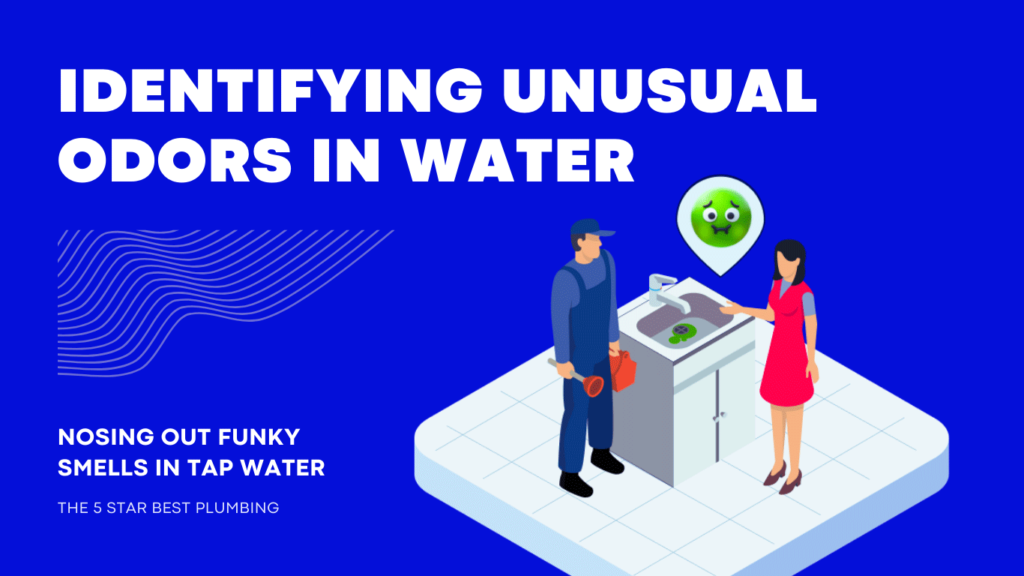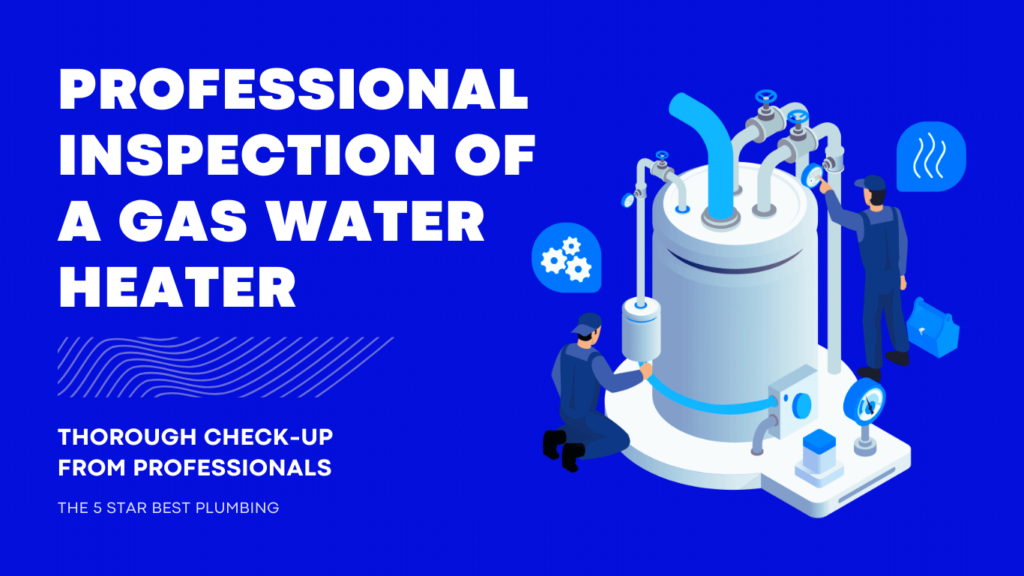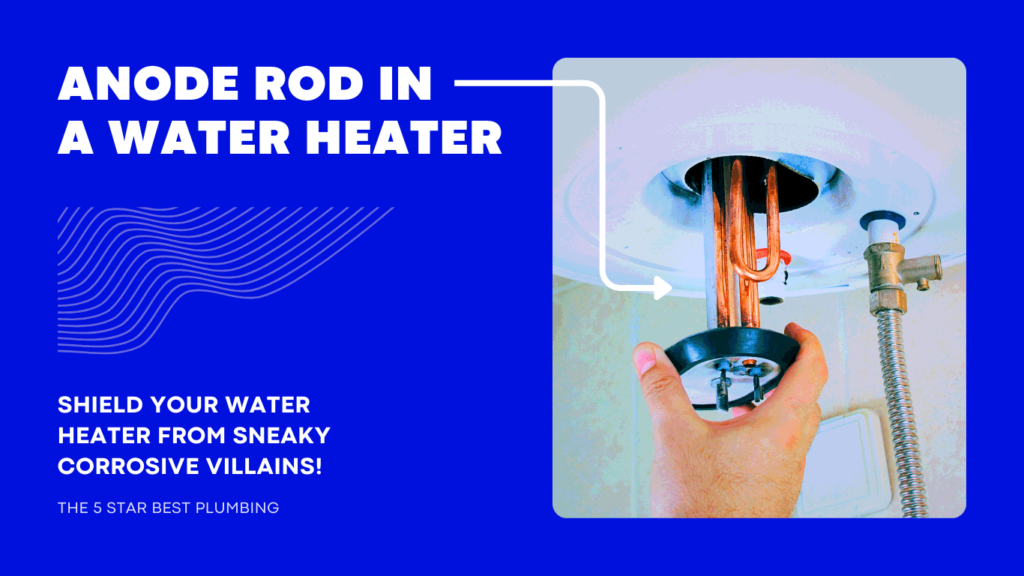Imagine stepping into your shower, turning on the tap, and being greeted by an unpleasant surprise – water heater issues that leave your bathroom filled with unusual odors and discolored water. If your water heater stinks or you’re dealing with a smelly hot water tank, you’re not alone. These common problems can be quite a nuisance, but fear not!
In this comprehensive guide, we will delve into the causes behind these unsettling phenomena and provide practical solutions to help you bid farewell to the foul smells, off-putting discoloration, and even the unsettling hint of gas. Your trusty water heater can be rejuvenated, and we’re here to show you how!
Table of Contents
Introduction to Water Heater Maintenance
Water heater maintenance is crucial for ensuring the longevity and efficiency of your appliance. Neglecting regular upkeep can lead to various problems, including the issue where the water heater smells weird. This peculiar odor often results from accumulating sediment and minerals in the tank, which can foster bacterial growth or cause the heating element to emit unpleasant smells. Routine maintenance, including flushing the tank, checking for leaks, and inspecting the anode rod for corrosion, helps prevent such issues.
Additionally, it enhances the efficiency and extends the lifespan of your water heater, saving you money in the long run. By addressing these maintenance tasks naturally and routinely, you can enjoy a reliable hot water supply and avoid the inconvenience and potential hazards of a malfunctioning water heater.
Common Odor Problems in Water Heaters

Unpleasant odors emanating from your water heater can be off-putting and concerning. These odors may range from a rotten egg smell to other foul scents. Here’s how to pinpoint the source of these foul smells from water heaters and understand the reasons behind them, including instances where hot water discolored.
Identifying the Source of Bad Odors
Identifying the source of bad odors in water heaters is crucial to resolving the issue effectively. Several factors can contribute to unpleasant smells emanating from your water heater. To pinpoint the cause, follow these steps:
- Check the Anode Rod: Inspect the anode rod, a sacrificial component that prevents corrosion within the tank. If it’s corroded or depleted, it can produce a rotten egg-like odor. Replace it if necessary.
- Bacterial Growth: Bacteria in the water can react with the anode rod or sediment buildup, causing a foul smell. Disinfect the tank with hydrogen peroxide or chlorine-based products.
- Sediment Accumulation: Over time, sediment can settle at the bottom of the tank and create a breeding ground for bacteria. Drain and flush the tank to remove sediment buildup.
- Gas Leaks: If you notice a gas-like odor, it could indicate a gas leak in the water heater. Turn off the gas supply immediately, and contact a professional for inspection and repair.
- Sulfur Bacteria: Presence of sulfur bacteria in the water supply can lead to a rotten egg odor. Install a water treatment system to address this issue.
- Plumbing Issues: Bad odors can also originate from plumbing connections or pipes. Check for leaks, loose fittings, or damaged seals in the water heater’s plumbing system.
- Vents and Exhaust: Ensure proper ventilation and exhaust systems are functioning correctly to prevent the accumulation of noxious gases.
Water Heater Smells Like Rotten Eggs
When your water heater smells like rotten eggs, it’s typically due to the presence of hydrogen sulfide gas in the water. This foul odor can be unpleasant and alarming, but understanding the underlying causes and implementing solutions can help resolve the issue.
Causes:
- Bacteria Activity: Sulfate-reducing bacteria in the water interact with the anode rod inside the water heater, producing hydrogen sulfide gas as a byproduct. This gas has a distinct rotten egg odor.
- Anode Rod Reaction: The anode rod, usually made of magnesium or aluminum, can react with sulfur compounds in the water, leading to the release of hydrogen sulfide gas.
Solutions:
- Flush the Tank: Periodically flushing the water heater tank can help remove sediment and bacteria buildup. Turn off the heater, attach a hose to the drain valve, and let the tank drain completely. This will help eliminate the source of the hot water heater smells.
- Replace the Anode Rod: If the anode rod has reacted with sulfur compounds and is the source of the odor, consider replacing it with an aluminum-zinc alloy rod, which is less likely to produce the smell.
- Disinfection: Shock chlorination or hydrogen peroxide treatment can kill the bacteria causing the odor. Consult a professional for proper disinfection procedures.
- Water Treatment: Installing a water treatment system, such as a water softener or aeration system, can help remove sulfur compounds and bacteria from the water supply.
- Consult a Professional: If the issue persists or you’re unsure how to address the hot water smells bad, seek the assistance of a professional plumber who can diagnose the problem and recommend appropriate solutions.
Get your water heater repaired or replaced the same day
Addressing Foul Smells from Your Water Heater
Dealing with foul smells from your water heater is essential for maintaining a clean and comfortable living environment. Here are some general tips to address various bad smells that may emanate from your water heater:
- Identify the Source: Determine the specific type of odor and its source. Common water heater odors include rotten eggs (hydrogen sulfide), metallic or rusty smells (corrosion), chemical or plastic odors (component issues), and sewage-like odors (plumbing problems). Understanding the source helps you select the appropriate solution.
- Flush the Tank: Periodically flushing the water heater tank can remove sediment buildup and bacteria, which can contribute to foul odors. Follow the manufacturer’s instructions for flushing or hire a professional plumber.
- Inspect the Anode Rod: If you detect a rotten egg odor, check the condition of the anode rod. Replace it if it’s corroded, as this can be a common source of the smell.
- Disinfect: To eliminate bacteria causing odors, consider shock chlorination or hydrogen peroxide treatment. Consult a professional for proper disinfection methods.
- Water Treatment Systems: Install water treatment systems like water softeners or aeration units to remove sulfur compounds or other impurities from your water supply.
- Check Plumbing: If the smell resembles sewage, inspect your plumbing for blockages, leaks, or improper venting. Address any plumbing issues promptly.
- Safety First: If you suspect a gas leak (typically indicated by a strong gas odor), immediately turn off the gas supply and contact a professional for inspection and repair.
- Regular Maintenance: Call a plumber near you and schedule regular maintenance for your water heater, including inspecting and replacing components as needed to prevent bad odor from the hot water heater from developing.
Get your water heater repaired or replaced the same day
Discoloration Issues in Hot Water

Discoloration in hot water can be a frustrating problem for homeowners. It can result from various factors, including rust, sediment, and water quality issues. Understanding the specific causes of discolored water can help you identify and address the problem effectively.
Causes of Discolored Water from Water Heaters
Discolored water from water heaters can be a cause for concern, and understanding the common reasons behind it is essential for addressing the issue. Several factors can lead to discolored water from water heaters.
- Sediment Buildup: Over time, sediments like rust, minerals, and debris can accumulate at the bottom of the water heater tank. This buildup can discolor the water as it mixes with the clean water, resulting in a brown or rusty appearance.
- Corrosion: Corrosion within the water heater tank or in the pipes connected to it can lead to discolored water. When the interior metal surfaces corrode, particles can enter the water, causing it to turn brown or reddish.
- Aging Pipes: Older plumbing systems with corroded or deteriorating pipes can introduce rust and other contaminants into the water supply. This can lead to discolored water, especially when hot water is used.
- Anode Rod Decay: Anode rods are sacrificial components inside water heaters that prevent tank corrosion. When these rods deteriorate, it can result in discolored water as the tank’s interior becomes more susceptible to rusting.
- Bacterial Growth: In rare cases, bacteria can flourish in water heaters, producing a brown or reddish tint. This can occur in stagnant water or if the water heater temperature is set too low.
Brown Water After Flushing Water Heater
Experiencing brown water after flushing your water heater is a common occurrence, but it can be concerning. This discoloration is usually a result of sediment and minerals that have settled at the bottom of the tank being stirred up during the flushing process. Here’s some specific advice on how to deal with brown water after flushing your water heater:
- Wait It Out: In many cases, the brown water is temporary and will clear up on its own. Allow your cold and hot water taps to run for several minutes until the water becomes clear again. Start with the cold water first to avoid pushing the discolored water into your hot water lines.
- Repeat Flushing: If the brown water persists, consider repeating the flushing process. Ensure that you turn off the power supply (electricity or gas) to the water heater before doing this. Continue flushing until the water runs clear.
- Check the Anode Rod: Inspect the condition of the anode rod during the flushing process. If it’s severely corroded, replacing it may help prevent future sediment buildup and discoloration.
- Routine Maintenance: Implement a regular water heater maintenance schedule. Flushing the tank at least once a year can help prevent sediment accumulation and brown water issues.
- Water Quality Testing: If the brown water problem continues despite maintenance efforts, consider having your water tested for high mineral content or other issues that may contribute to sediment buildup.
- Professional Help: If brown water persists or worsens, it’s advisable to consult a professional plumber. They can assess your water heater, pipes, and overall water quality to identify and address any underlying issues.
Get your water heater repaired or replaced the same day
Resolving New Hot Water Heater Discoloration
Experiencing discolored water from a new hot water heater can be disconcerting, but it’s not uncommon. This discoloration typically occurs due to residual materials from the manufacturing and installation process. Here are some tips for resolving the new hot water heater discolored water:
- Initial Flushing: After the installation of a new hot water heater, flush the tank thoroughly. This helps remove any debris, sediments, or leftover flux from soldering pipes that may have entered the tank during installation. Follow the manufacturer’s guidelines for flushing.
- Multiple Flushing Rounds: Sometimes, a single flush may not be enough to clear the discolored water completely. Consider flushing the tank a few times, allowing fresh water to circulate through the system until the water runs clear.
- Check the Anode Rod: Examine the condition of the anode rod. If it appears severely corroded or deteriorated, consider replacing it. A damaged anode rod can contribute to discolored water.
- Routine Maintenance: Implement a regular maintenance schedule for your new hot water heater. Flushing the tank annually can help prevent sediment buildup and subsequent discoloration.
- Check Water Supply: Verify that the incoming cold water supply to the water heater is clear. Sometimes, discolored water may be caused by issues in the water source itself.
- Consult the Manufacturer: If the problem persists despite your efforts, reach out to the manufacturer or the installer for guidance. They may be able to provide specific recommendations or warranty support if the issue is related to a manufacturing defect.
Get your water heater repaired or replaced the same day
Gas Smells and Safety Concerns with Water Heaters

Gas smell issues with water heaters can pose serious safety concerns. A distinct odor, often described as rotten eggs, can indicate a gas leak from the appliance. Ignoring this smell may lead to hazardous situations, including fires or explosions. By understanding the risks associated with gas smell water heaters, homeowners can take necessary precautions to ensure their safety and that of their loved ones.
Identifying Gas Smell from Hot Water Heaters
Identifying a gas smell from hot water heaters is crucial for safety. Natural gas, used in many water heaters, is odorless, but utility companies add a distinctive odorant, typically a sulfur or “rotten egg” smell, to help detect leaks. Here’s how to recognize and respond to gas smells from hot water heaters:
- Use Your Senses: Your sense of smell is your first line of defense. If you detect a strong, unusual odor near your water heater, it could be gas. Take it seriously.
- Ventilation: Ensure proper ventilation in the area where the water heater is located. Good airflow helps disperse any gas leaks.
- Gas Detector: Consider installing a natural gas detector near your hot water heater. These devices can provide an early warning by sounding an alarm when gas levels are too high.
- No Flames or Sparks: Do not light matches, candles, or use any electrical switches or appliances near the suspected gas leak. These can ignite gas and lead to an explosion.
- Shut Off Gas: If you’re sure there’s a gas leak, shut off the gas supply to the water heater immediately. The gas shut-off valve is typically located on the gas line leading to the appliance.
- Evacuate and Call for Help: Leave the area immediately and take everyone with you. Go to a safe location outdoors and call your gas company’s emergency number or 911. Do not re-enter the building until it’s deemed safe by professionals.
- Prevention: Regular maintenance and professional inspections can help prevent gas leaks. Be proactive in keeping your water heater in good working condition.
Get your water heater repaired or replaced the same day
Safety Measures for Gas Smelling Water Heaters
Gas water heaters are a convenient way to provide hot water for your home, but they also have potential safety risks. To ensure the safe operation of your gas water heater, here are some crucial safety measures and precautions to follow:
- Proper Installation: Have your gas water heater installed by a qualified professional. Ensure it complies with local building codes and regulations.
- Ventilation: Adequate ventilation is essential to prevent the buildup of carbon monoxide (CO) gas. Ensure vents are unobstructed and regularly inspected for blockages.
- Carbon Monoxide Detectors: Install CO detectors near your gas water heater and throughout your home. Test them regularly and replace batteries as needed.
- Gas Leaks: Be vigilant for the smell of gas (a rotten egg odor). If you detect gas, do not use electrical devices or create sparks. Immediately turn off the gas supply and contact your gas utility company.
- Flammable Materials: Keep flammable items away from the water heater, including chemicals, paper, and cloth. Maintain a clear area around the unit.
- Regular Maintenance: Schedule annual maintenance checks by a qualified technician to inspect for leaks, corrosion, and proper functioning, as this can help you avoid unexpected water heater repair costs.
- Temperature Setting: Set the water heater’s temperature to a safe and efficient level (usually around 120°F or 49°C) to prevent scalding and save energy.
- Pressure Relief Valve: Test the pressure relief valve annually to ensure it’s functioning correctly. Replace it if necessary.
- Children and Pets: Keep children and pets away from the water heater. Install a barrier or safety gate if necessary.
- Emergency Procedures: Familiarize yourself with emergency shutdown procedures and know how to shut off the gas supply and water heater in case of an emergency.
Get your water heater repaired or replaced the same day
Water Heater Anode Rod and Smell Issues

The anode rod plays a pivotal role in water heater odor issues. Made of materials like aluminum or magnesium, it sacrifices itself to prevent tank corrosion. However, when depleted, bacteria can thrive, leading to foul-smelling water. The anode rod’s condition directly affects water quality and odor. Routine inspection and replacement, if needed, are vital to maintaining a clean and odor-free water supply from your heater.
The Role of Anode Rod in Water Heater Odors
Anode rods play a crucial role in water heaters by protecting the tank from corrosion, but they can also influence water odor. These rods are typically made of magnesium, aluminum, or zinc, and they are designed to corrode sacrificially, diverting the corrosive elements in water away from the inner tank lining. While this corrosion is essential for preserving the tank’s integrity, it can lead to the production of hydrogen sulfide gas.
Hydrogen sulfide gas is a colorless, odorless substance often found in well water and other water sources. When the anode rod corrodes, it can interact with the naturally occurring sulfur bacteria in the water, resulting in the release of hydrogen sulfide gas. This gas has a distinct “rotten egg” odor, which can be unpleasant and easily noticeable when you use hot water.
In essence, the anode rod indirectly influences water odor by participating in the chemical reactions that produce hydrogen sulfide gas. If your water heater emits a foul smell, it could indicate a reaction between the anode rod, bacteria in the water, and sulfur compounds. To mitigate this issue, you can replace the existing anode rod with one made of a different material or install a powered anode rod, which reduces the production of hydrogen sulfide gas and helps maintain a more pleasant odor in your hot water supply.
Replacing the Anode Rod to Eliminate Bad Smells
Replacing the anode rod in your water heater can help eliminate bad smells and improve its overall performance. Here’s a step-by-step guide to help you with this essential maintenance task. Remember, it’s advisable to seek professional water heater replacement near you if you’re not confident in your abilities.
- Turn Off the Power: Start by switching off the power supply to your water heater. For electric heaters, locate the breaker and turn it off. For gas heaters, set the thermostat to the lowest setting.
- Turn Off the Water Supply: Shut off the cold water supply valve leading to the heater.
- Drain the Tank: Connect a hose to the drain valve at the bottom of the tank and empty the water into a drain or bucket.
- Locate the Anode Rod: The anode rod is usually located on top of the water heater. It’s a long metal rod with a hex head.
- Remove the Old Anode Rod: Use a wrench to unscrew the old anode rod counterclockwise.
- Install the New Anode Rod: Insert the new anode rod into the opening and tighten it clockwise with your wrench.
- Refill the Tank: Turn on the water supply and allow the tank to fill completely.
- Restore Power: For electric heaters, flip the breaker back on. For gas heaters, set the thermostat to the desired temperature.
- Check for Leaks: Inspect for any leaks around the anode rod and connections.
- Test the Water: Wait for the water heater to reach the set temperature, then turn on a hot water tap to ensure there are no strange odors.
Get your water heater repaired or replaced the same day
Troubleshooting and Preventing Water Heater Problems
Here are the general tips for maintaining and troubleshooting your water heater. You’ll find valuable insights on identifying and addressing common issues to ensure your water heater operates efficiently. Whether addressing leaks, water from the water heater smells, strange noises, or inconsistent hot water supply, this practical guidance will keep your water heater in optimal condition, potentially saving you time and money on repairs.
Regular Maintenance to Prevent Odors and Discoloration

Regular maintenance is crucial to prevent odors and discoloration in your water heater, ensuring it functions efficiently and provides clean, safe hot water. Here are preventive measures to follow:
- Flushing the Tank: Regularly flush the water heater tank to remove sediment buildup and prevent discoloration. This should be done annually, following the manufacturer’s guidelines.
- Inspect the Anode Rod: Check the condition of the anode rod every 2-3 years. If it’s corroded, replace it to prevent foul odors caused by bacterial reactions.
- Use a Water Softener: Install a water softener if your water supply is hard. This reduces mineral deposits, preventing scale buildup inside the tank, which can cause discoloration.
- Temperature Setting: Keep the water heater’s temperature at a safe and efficient level, typically around 120°F (49°C). Higher temperatures can promote bacterial growth and increase the risk of odors.
- Regular Maintenance Schedule: Create a maintenance schedule and stick to it. Note the dates for flushing, inspecting the anode rod, and other routine checks.
- Annual Professional Inspection: Have a qualified technician inspect your water heater annually. They can identify potential issues and recommend necessary repairs or replacements. Learn more about steps in replacing a water heater >>
- Water Treatment System: Consider installing a water treatment system, such as a water filter or water softener, to improve water quality and reduce the chances of odors and discoloration.
- Check Plumbing Connections: Inspect the water heater’s plumbing connections regularly for leaks or loose fittings, which can lead to odors and discoloration.
- Address Bacterial Growth: If you notice a rotten egg odor, treat the tank with hydrogen peroxide or a chlorine-based product as per manufacturer guidelines to eliminate bacteria.
- Follow Manufacturer Guidelines: Always follow the manufacturer’s instructions for maintenance and care of your specific water heater model.
Remember that regular maintenance not only prevents odors and discoloration but also extends the lifespan of your water heater. Download our maintenance checklist below to keep track of your water heater maintenance schedule and ensure the continued efficiency and reliability of your system.
When to Call a Professional for Water Heater Issues
If your water heater stinks or you notice discolored water after draining the water heater, it’s crucial to call a professional promptly. These issues could indicate serious problems. The unpleasant odor may be due to bacterial growth in the tank, which needs immediate attention to prevent health hazards. Discolored water might signal sediment buildup or corrosion, potentially affecting water quality and damaging the heater.
A professional plumber has the expertise to diagnose and address these issues safely and efficiently. Don’t delay; contact a certified plumber today for water heater services to ensure the proper functioning of your appliance and the health of your household water supply.
Get your water heater repaired or replaced the same day
Expert Tips for a Fresh and Efficient Water Heater

In conclusion, understanding and resolving common water heater issues, including odors, discoloration, and gas smells, is crucial for maintaining the functionality and safety of your system. Regular maintenance is the cornerstone of preventing these problems, and identifying their sources is the first step in effective resolution.
Read also 15 Common Problems with Your Rheem Water Heater >>>
From addressing the infamous rotten egg smell to dealing with various foul odors, this guide equips you with the knowledge and solutions needed for a pleasant water heating experience. Additionally, we’ve emphasized the importance of safety when it comes to gas smells and provided actionable steps to ensure your well-being.
The water heater’s anode rod also plays a significant role in odor control, and our step-by-step guide on its replacement will help you maintain fresh, clean water.
For overall troubleshooting and prevention, we’ve shared general tips and preventative measures. And finally, we’ve offered guidance on when it’s time to seek professional assistance. By following these expert tips and recommendations, you can enjoy a fresh and efficient water heater, ensuring your comfort and peace of mind for years to come.
FAQs about Water Heater Maintenance
1. Why does my water heater emit a rotten egg smell?
Hot water smells like rotten eggs due to the presence of hydrogen sulfide gas, typically caused by bacteria reacting with sulfur compounds in the water heater.
2. What should I do if my hot water is discolored?
If you notice discolored water from a water heater, immediately stop using it and contact a professional plumber to inspect and resolve the issue to ensure a safe and clean water supply.
3. Is it normal for a new water heater to produce discolored water?
Yes, it is normal for a new hot water heater to produce discolored water initially due to sediment buildup in the tank. Flushing it can help clear the discoloration.
4. How often should I replace the anode rod in my water heater?
It would be best to replace the water heater anode rod regularly to prevent water heater anode rod smell, typically every 2-5 years, to avoid corrosion and odor buildup.
5. Can a gas smell from my water heater be a sign of a dangerous problem?
Yes, a gas smell from your water heater can indicate a dangerous problem, such as a gas leak or improper combustion. It’s crucial to address it immediately to prevent hazards.








